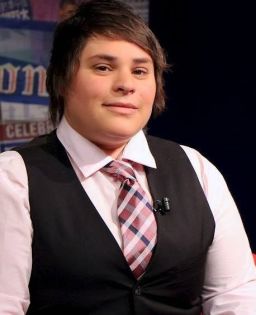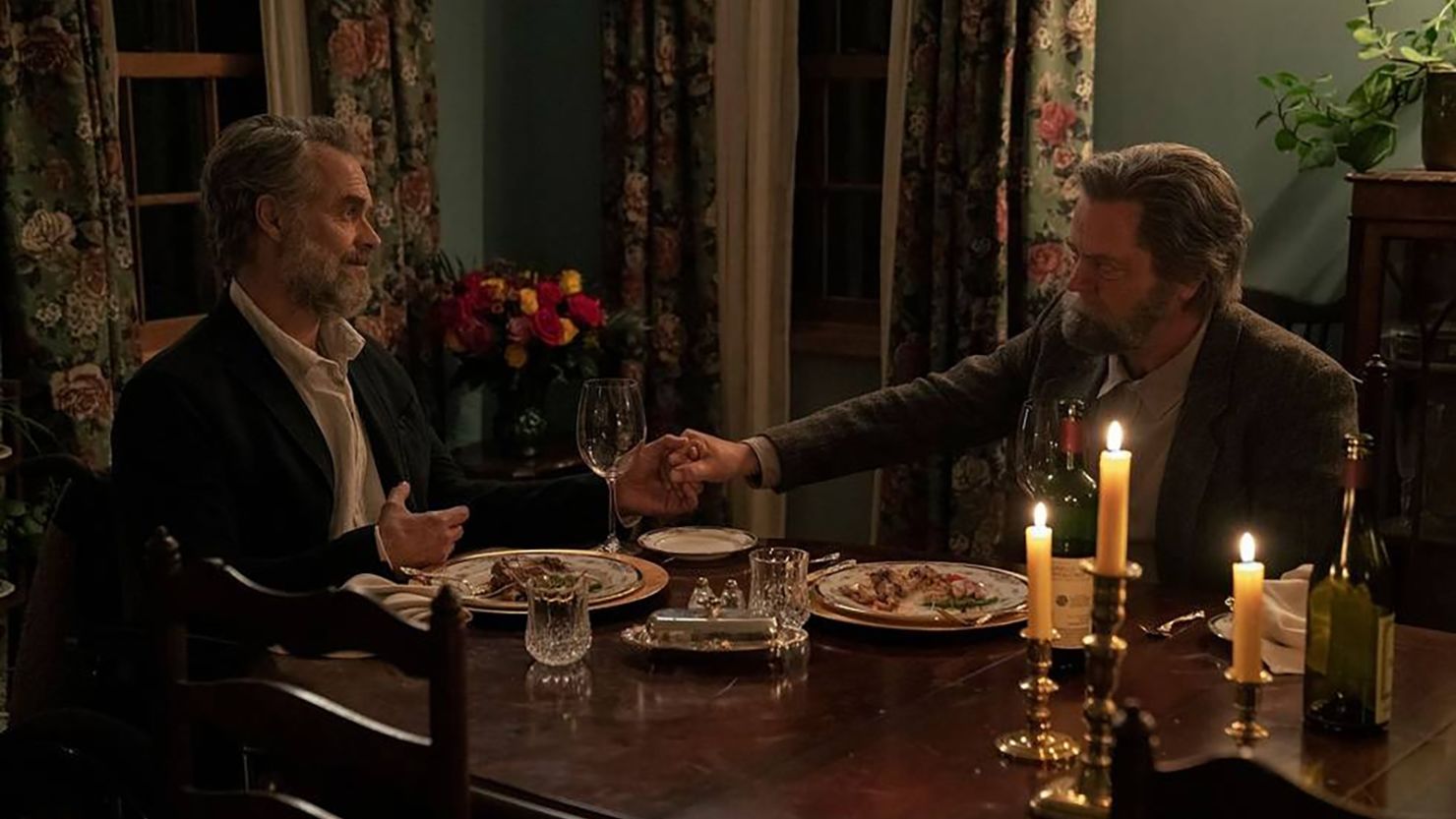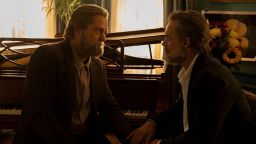Editor’s Note: Allison Hope is a writer whose work has been featured in The New Yorker, The New York Times, The Washington Post, CNN, Slate and elsewhere. The views expressed here are her own. Read more opinion on CNN.
This op-ed contains spoilers for “The Last of Us.”
I’m a lesbian, so it’s not every day I’m compelled to celebrate two middle-aged, burly, hairy men.
I first took note of “The Last of Us,” the post-apocalyptic HBO show based on the same-named PlayStation video game, when my queer social feeds lit up about a surprise episode in which a gay couple figured prominently. (CNN shares a parent company with HBO.)

There was nothing in the description of the game or the show – a “ravaged civilization, where infected and hardened survivors run rampant” – that sounded appealing to me. Still, as a professional consumer of LGBTQ media, it felt like required watching.
I suffered through the first two nail-biting, but sorely shallow episodes filled with gore and guns and no humanity. Then, in the third episode, the sun came out.
As many of you likely already know, Bill, played by Nick Offerman, is a self-described survivalist who manages to escape the mandatory evacuations of his town, hunkering down for a solitary life that feels more normal – one of fine wine and backup generators – while the rest of the world devolves into fungal zombies or refugees living under totalitarian, militaristic rule. Then he meets Frank, played by Murray Bartlett, who literally falls into Bill’s trap, a hole dug around the property’s perimeter to keep everyone – and everything – out.
The two fall in love and a decade-and-a-half romance ensues, the only on-screen civility to be seen in an otherwise vagrant and collapsed society. Their story and the episode end when Frank chooses to swallow a crushed bottle of pills in his Beaujolais rather than succumb to a degenerative illness. In a true “Romeo and Juliet” ending, Bill takes his own life as well, claiming that Frank was his purpose, and he is “satisfied.” Keep the tissue box handy.
It’s easy to gloss over how groundbreaking “The Last of Us” is in its centering of queer love in such wildly mainstream programming. The on-screen romance not only features two men, but two men not in the flush of youth. I never would have guessed I’d see such a couple celebrated outside of Provincetown Bear Week. Their love affair played out on screen in ways frankly more tender than any heterosexual romance could have been.
What’s more, instead of being – as in many other narratives – the focus (or target) of the story’s pain, this gay couple’s plotline represents the show’s only joyful reprieve in an otherwise doomed world. This is unfolding alongside the increasingly mainstream treatment of queer lives and experiences. Brilliantly, we’re also seeing the mainstreaming of non-LGBTQ-identifying actors playing LGBTQ characters – something that even a decade ago seemed hard to imagine. It’s the type of depiction that can help move the needle on acceptance of LGBTQ people, and it comes at an urgent time for equality.
We know that visibility increases acceptance of our lives and equal rights. Marriage equality passed, many posited, because an increasing number of people knew someone who was LGBTQ, a fact affirmed by a 2009 Gallup poll. If you accept that somewhere between 5-10% of people are LGBTQ (the latest estimate puts us at 7.1%, according to a 2022 Gallup poll, but given how many people may not feel comfortable sharing, fair to say the number is higher), then it should be no big deal to see LGBTQ people in TV shows and movies. It’s only shocking to see us represented because for so long, we weren’t.
There have been so many critical moments throughout history that would have benefited from the kind of care taken with the third episode of “The Last of Us” – or shows like “Heartstopper” or the remake of “She-Ra” or “Our Flag Means Death.” At earlier times in history, more of this could maybe have helped save lives – during the Lavender Scare, after the assassination of Harvey Milk, at the height of the AIDS crisis, during the era of “Don’t Ask, Don’t Tell” and the passage of the Defense of Marriage Act and state constitutional amendments banning same-sex unions.
Too often, even in the recent past, when we did show up on screen played by A-list actors with mainstream budgets, we were the abused – like Hilary Swank in “Boys Don’t Cry” – or disease-ravaged, like Jared Leto in “Dallas Buyer’s Club.” Or we were shriveled inside ourselves unable to break free like Jake Gyllenhaal in “Brokeback Mountain;” or else an exponential iteration of every gay stereotype, as in Nathan Lane and Robin Williams in “The Birdcage.” I don’t recall seeing an LGBTQ character in a TV show when I was coming of age in the late 1990s – outside of the occasional transgender murder victim on an episode of “Law and Order” or Ellen DeGeneres getting canceled when she did finally come out.
None of this makes “The Last of Us” my favorite show – I’m not converting to apocalyptic horror stories any time soon. But I relish my choice to watch it, primarily because it would be true fiction if the display of affection between two men were met with just fanfare of those who love the show, particularly in this hotbed of sociopolitical warfare we’re wading through. The mismatch between the love for “The Last of Us” and red state reality is real. There is a noxious faction of homophobic trolls who have been weighing down online ratings on the show with claims that the “woke” HBO tried to trick straight people into watching gay people. It makes me wonder if all this time, all those heteronormative directors and screenwriters were trying to trick us queers into watching straight people. The nerve!
Watching “The Last of Us” alongside millions of others felt like we had finally been let into the real party. Or perhaps more accurately, like everyone else had finally been let in to our big, queer party and allowed to get a glimpse, however fleeting, of the ways in which our love can be every bit as delicate and beautiful – and as important – as theirs. Maybe even more so. After all, what straight man serenades his wife with the right wine pairing, impeccably roasted root vegetables and rabbit followed by a Linda Ronstadt piano performance?





